Expertise provided by Kevin Matthews from buildingbread.com
Financial stocks can be an addition, to an investment portfolio. They offer the potential for earnings through dividends and long-term growth in value. However, like any investment option financial stocks do come with their own set of risks.
The risks associated with stocks are not the same across the board. Some stocks may seem risky. But, it's important to look at the big picture for a financial institution. Many factors can impact stock risk. These include interest rate changes. For example, the 2008 financial crisis, and possible government closures and inflation fluctuations. For example, interest rate shifts may hit bank stocks. But, upticks in home sales and prices could help mortgage lenders. In the end, the risk of investing in the sector depends on individual companies and the market.
We will discuss this. We will delve into aspects to consider when assessing the risks of stocks.
Understanding the Risks
Some of the questions you should be asking yourself include:
- Are banking stocks safe?
- Why are bank stocks risky?
Investing in banking stocks is not a guaranteed bet as their value can be influenced by factors. They offer stability and dividends. But they are also vulnerable to risks. These risks include changes in rates. Also, they include downturns, rules, and market swings. For instance, in uncertain times, banks may see more loan defaults and less lending. This will impact their profits and stock prices. Also, rate changes can affect a bank's net interest margins. This leads to swings in earnings and investor trust.
Experts consider bank stocks risky. This is because they are prone to outside influences and regulations. Recessions and interest rate changes can greatly affect banks. They impact bank performance and the quality of their assets. Also, rule changes can cause uncertainties and add costs. These affect profits and investor confidence. Also, markets are interconnected. So, credit crises and sovereign debt defaults can hurt bank stocks. In essence, banking stocks offer growth and income. However, investors should be aware of the risks in this sector.
Are bank stocks worth buying right now?
Whether to invest in bank stocks is a decision. Right now, it hinges on your risk comfort and financial goals. Earnings and expansion are promising. But, changes in the economy, interest rates, and competition's ups and downs could affect them.
Why Financial Stocks Can Be Risky
Shares of companies are vulnerable, to risks that could impact their market value. Here are a few of the ones;
Economic downturns: Financial companies typically follow a pattern where their success is linked to the state of the economy. In times of downturns there is often an increase, in loan defaults prompting banks to allocate funds for dealing with these losses. This can impact their earnings. Result in a decrease, in the value of their stocks.
Interest rate risk: Banks generate profits by lending money at an interest rate, than what they pay to borrow funds. An increase in interest rates allows banks to make money from their loans. It can also lead to higher borrowing costs impacting their profitability. Conversely a decrease in interest rates results in earnings, for banks from their loan activities.
Competition: The finance sector is getting more competitive as new fintech firms keep popping up which can squeeze bank's profits.
Regulation: The financial sector faces regulations that can increase costs, for banks ultimately impacting their profit margins.
How to Mitigate Risk
Although it’s impossible to avoid the uncertainties linked to investing in stocks there are various steps you can take to lessen them;
Diversify your portfolio: Spread out your investments across types of assets, like stocks, bonds, and cash equivalents of concentrating all your money in one place. Diversifying can lower the risks you face overall.
Do your research: Before deciding to invest in a stock make sure to conduct research and grasp the company’s business strategy, health, and growth potential. Focus on evaluating the bank's capital adequacy ratios as they indicate how well it can handle losses.
Invest for the long term: Investing in stocks can be a choice, for the long term. While they carry some risks, these tend to balance out over time. However, if you anticipate needing your funds in the future it might be wise to steer clear of stocks.
Consider the size and type of bank: Big banks typically have a range of investments compared to banks, which can lower their risk level. Still, running small banks with a presence in their market can also be good investments.
Are Small Banks More Attractive Than Large Banks Right Now?
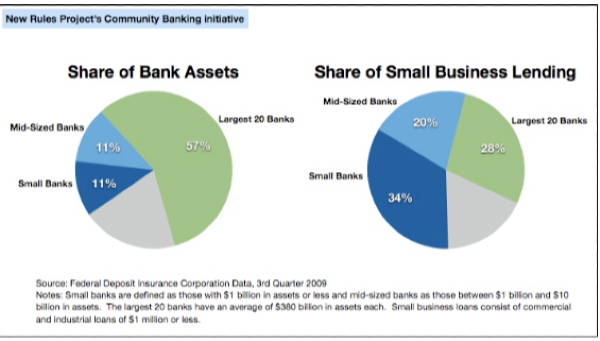
Source: Federal Deposit Insurance Corporation (FDIC)
The answer to this question depends on your individual risk tolerance and investment goals. Small banks can offer higher growth potential than large banks, but they are also riskier. Large banks are generally considered to be safer investments, but they may also offer lower growth potential.
Small regional banks are very attractive right now. A great example of this is Western Alliance Bank. This regional bank has quietly jumped 300% since collapsing in 2023. However, the reason these smaller banks are more attractive is that a few regional banks have collapsed in the last year. Hence, you need to conduct more detailed research before buying regional bank stock.
Valuing a Bank Stock
There are some factors to consider when valuing a bank stock, including the bank's earnings, book value, and price-to-earnings (P/E) ratio. However, it is important to remember that no single valuation metric is perfect. It is important to consider a variety of factors before making an investment decision.
The best way to analyze a bank stock is by using a value investing strategy. It is important to take the stock’s book value and earnings into account as well as its future earnings growth potential. Most importantly, you must discount the intrinsic value of financial stocks by at least 15%. This is due to a sudden shift in the market’s perception of financial stocks after the 2008 financial crisis. As you can see in the chart below, the price of JP Morgan would stay near the intrinsic value of the bank. However, after 2009, the bank’s stock continues to hover below the intrinsic value of JP Morgan.
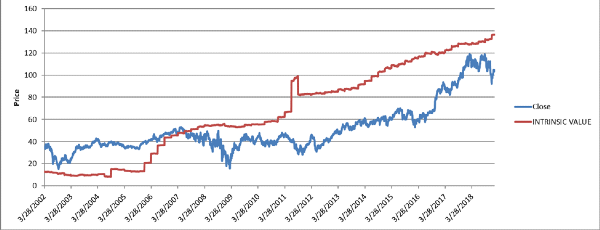
This shift may be caused by the risk added to banks by investors. Or, it may be caused by a discount on future cash flow due to restrictions placed upon banks by the government after the crisis.
Conclusion
Adding stocks to an investment portfolio can be beneficial but it comes with its own set of risks. It is crucial to comprehend these risks and implement strategies to minimize them. This way you can make informed investment choices regarding the suitability of stocks, for your portfolio.
Additional Considerations
Please remember that the details provided above are more of an overview and should not be taken as guidance. It's always an idea to seek advice, from a financial advisor before you decide on any investment plans.
Finance always changes. So, it's crucial to keep yourself informed about the trends and risks before you consider investing.
https://youtu.be/IwAPufWajD4


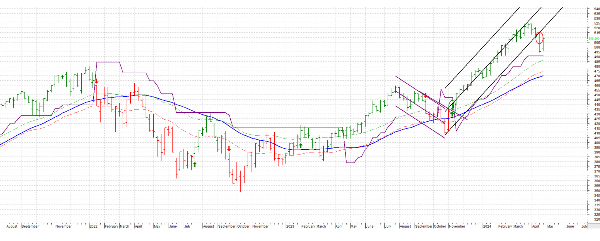


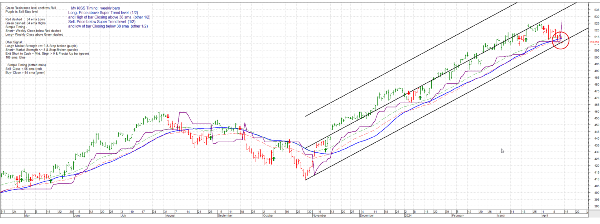




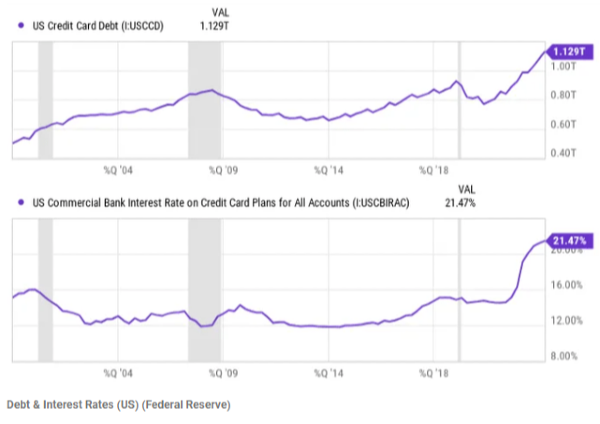


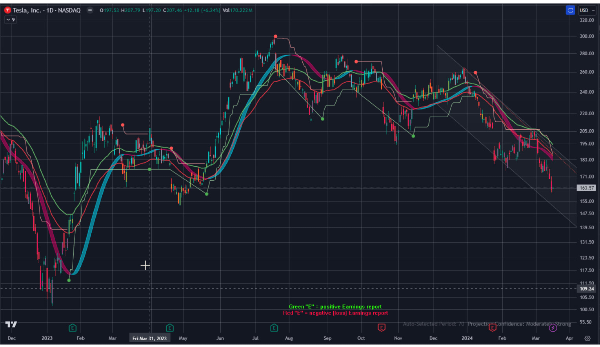
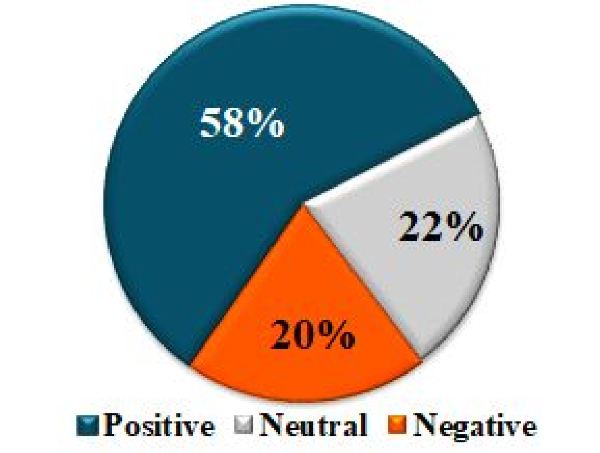
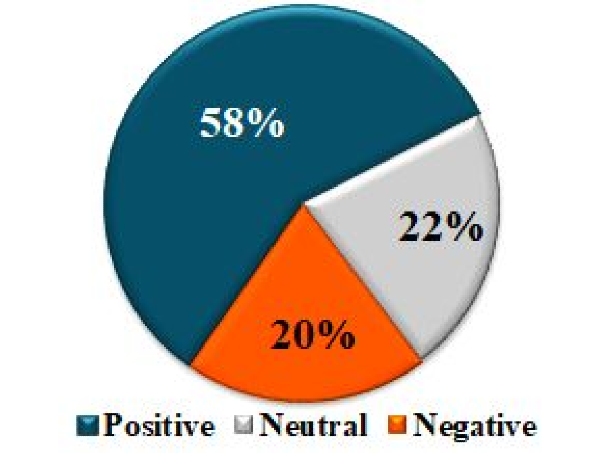
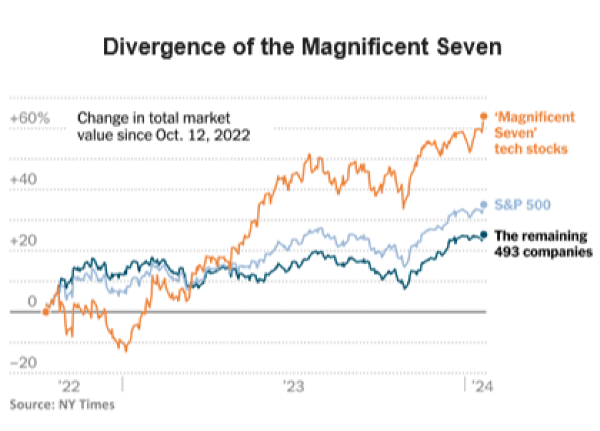













Expertise provided by Kevin Matthews from buildingbread.com
Financial stocks can be an addition, to an investment portfolio. They offer the potential for earnings through dividends and long-term growth in value. However, like any investment option financial stocks do come with their own set of risks.
The risks associated with stocks are not the same across the board. Some stocks may seem risky. But, it's important to look at the big picture for a financial institution. Many factors can impact stock risk. These include interest rate changes. For example, the 2008 financial crisis, and possible government closures and inflation fluctuations. For example, interest rate shifts may hit bank stocks. But, upticks in home sales and prices could help mortgage lenders. In the end, the risk of investing in the sector depends on individual companies and the market.
We will discuss this. We will delve into aspects to consider when assessing the risks of stocks.
Understanding the Risks
Some of the questions you should be asking yourself include:
Investing in banking stocks is not a guaranteed bet as their value can be influenced by factors. They offer stability and dividends. But they are also vulnerable to risks. These risks include changes in rates. Also, they include downturns, rules, and market swings. For instance, in uncertain times, banks may see more loan defaults and less lending. This will impact their profits and stock prices. Also, rate changes can affect a bank's net interest margins. This leads to swings in earnings and investor trust.
Experts consider bank stocks risky. This is because they are prone to outside influences and regulations. Recessions and interest rate changes can greatly affect banks. They impact bank performance and the quality of their assets. Also, rule changes can cause uncertainties and add costs. These affect profits and investor confidence. Also, markets are interconnected. So, credit crises and sovereign debt defaults can hurt bank stocks. In essence, banking stocks offer growth and income. However, investors should be aware of the risks in this sector.
Are bank stocks worth buying right now?
Whether to invest in bank stocks is a decision. Right now, it hinges on your risk comfort and financial goals. Earnings and expansion are promising. But, changes in the economy, interest rates, and competition's ups and downs could affect them.
Why Financial Stocks Can Be Risky
Shares of companies are vulnerable, to risks that could impact their market value. Here are a few of the ones;
Economic downturns: Financial companies typically follow a pattern where their success is linked to the state of the economy. In times of downturns there is often an increase, in loan defaults prompting banks to allocate funds for dealing with these losses. This can impact their earnings. Result in a decrease, in the value of their stocks.
Interest rate risk: Banks generate profits by lending money at an interest rate, than what they pay to borrow funds. An increase in interest rates allows banks to make money from their loans. It can also lead to higher borrowing costs impacting their profitability. Conversely a decrease in interest rates results in earnings, for banks from their loan activities.
Competition: The finance sector is getting more competitive as new fintech firms keep popping up which can squeeze bank's profits. Regulation: The financial sector faces regulations that can increase costs, for banks ultimately impacting their profit margins.
How to Mitigate Risk
Although it’s impossible to avoid the uncertainties linked to investing in stocks there are various steps you can take to lessen them;
Diversify your portfolio: Spread out your investments across types of assets, like stocks, bonds, and cash equivalents of concentrating all your money in one place. Diversifying can lower the risks you face overall.
Do your research: Before deciding to invest in a stock make sure to conduct research and grasp the company’s business strategy, health, and growth potential. Focus on evaluating the bank's capital adequacy ratios as they indicate how well it can handle losses.
Invest for the long term: Investing in stocks can be a choice, for the long term. While they carry some risks, these tend to balance out over time. However, if you anticipate needing your funds in the future it might be wise to steer clear of stocks.
Consider the size and type of bank: Big banks typically have a range of investments compared to banks, which can lower their risk level. Still, running small banks with a presence in their market can also be good investments.
Are Small Banks More Attractive Than Large Banks Right Now?
Source: Federal Deposit Insurance Corporation (FDIC)
The answer to this question depends on your individual risk tolerance and investment goals. Small banks can offer higher growth potential than large banks, but they are also riskier. Large banks are generally considered to be safer investments, but they may also offer lower growth potential. Small regional banks are very attractive right now. A great example of this is Western Alliance Bank. This regional bank has quietly jumped 300% since collapsing in 2023. However, the reason these smaller banks are more attractive is that a few regional banks have collapsed in the last year. Hence, you need to conduct more detailed research before buying regional bank stock.
Valuing a Bank Stock
There are some factors to consider when valuing a bank stock, including the bank's earnings, book value, and price-to-earnings (P/E) ratio. However, it is important to remember that no single valuation metric is perfect. It is important to consider a variety of factors before making an investment decision. The best way to analyze a bank stock is by using a value investing strategy. It is important to take the stock’s book value and earnings into account as well as its future earnings growth potential. Most importantly, you must discount the intrinsic value of financial stocks by at least 15%. This is due to a sudden shift in the market’s perception of financial stocks after the 2008 financial crisis. As you can see in the chart below, the price of JP Morgan would stay near the intrinsic value of the bank. However, after 2009, the bank’s stock continues to hover below the intrinsic value of JP Morgan.
This shift may be caused by the risk added to banks by investors. Or, it may be caused by a discount on future cash flow due to restrictions placed upon banks by the government after the crisis.
Conclusion
Adding stocks to an investment portfolio can be beneficial but it comes with its own set of risks. It is crucial to comprehend these risks and implement strategies to minimize them. This way you can make informed investment choices regarding the suitability of stocks, for your portfolio.
Additional Considerations
Please remember that the details provided above are more of an overview and should not be taken as guidance. It's always an idea to seek advice, from a financial advisor before you decide on any investment plans.
Finance always changes. So, it's crucial to keep yourself informed about the trends and risks before you consider investing.
https://youtu.be/IwAPufWajD4